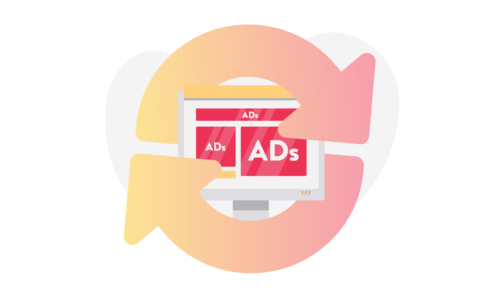A New Era for Publishers Without Third-Party Cookies
Undoubtedly we live in a data-driven world where collecting information about users is normal practice. Nevertheless, 2018 showed us that not everybody is pleased to give one’s data in exchange for “free access” to Facebook, or Instagram. The Facebook–Cambridge Analytica data-sharing scandal became one of the most notorious events of the connected world and has forced us to challenge our perceptions of data security and privacy. The scandal not only had a tremendous impact on legal regulations but also user behaviour. As a consequence, this year Google has made a bold decision to phase out third-party cookies within 2 years. Let’s assess the disruption that Google’s move has created in the Ad Tech sector and consider the potential solutions for publishers that the Ad Tech world is endeavouring to propose.
Decisions, decisions…
The announcement of cross-site tracking removal in Chrome has spread panic and disinformation among all stakeholders. Undeniably it will affect the way Publishers target audiences and deliver ads. But will this disruption herald a golden era and present new opportunities, or will it make things harder and simply queer the pitch?
Firstly, what’s worth noting is the fact that Google is only going to phase out third-party cookies. Still, publishers can create cookie-fuelled marketing strategies in accordance with the information they gather from first-party cookies. Although first-party-cookie-data is sufficient for coming up with an alternative strategy that won’t impact revenues, publishers need to rethink the objectives of their businesses and to track all news around Google’s revolutionary approach.
A New Era for Publishers Without Third-party Cookies
A world without third-party cookies is nothing more than a world full of new opportunities. Without a doubt, this is a bold statement but addressing technological disruption will only encourage people to look for new paths and to rethink current strategies. They will also have to find ways of managing the transitions and exploring numerous industry perspectives that might be a potential opportunity to build a new bright era together for a common aim.

New ways of collecting high-quality data.
Moving away from a third-party cookies ecosystem will be one of the biggest challenges that might deliver excellent benefits arising from the collection of user data. Publishers will have to make an extra effort to expand the quality and quantity of their target audiences and to learn how to buy and sell their ad inventory. This consequences for consumer privacy will fundamentally change literally everything that Publishers have known and have been putting into practice so far. Therefore, instead of providing first-party information, some Publishers might think about investing in their communities that will encourage readers to create profiles, or participate in content creation.
Google’s Privacy Sandbox
Privacy Sandbox is a new initiative introduced by Google that potentially will solve the Digital Advertising industry’s problems regarding the collection of user data. Later this year. The tech giant is planning to start testing its Privacy Sandbox. Click-based conversions will be traced within the browser, without any need for tracking third-party cookies. Basically Google wants to transform browser APIs into open-web standards which will allow users to keep their data fully safe but still trackable for publishers and Advertisers. Sounds like utopia? Time will tell how Google manages to strike the balance.
Publishers in the spotlight.
Advertisers deciding to buy ad inventory from specific Publishers will to a large extent be dependent on the individual website, its content and user experience. Definitely, due to the lack of third-party cookies, Advertisers will decide where to place ads, and it will be purely based on whether the content presented on a website matches their ads.
New-old brand building.
With new ways of collecting user data, Advertisers will have to rethink methods for tracking their target audience. As a consequence of the third-party cookie, digital advertising is focusing mainly on performance without paying attention to things that seem fundamental in convincing users to remain on the platform; and more importantly, click on an ad. Until now, Publishers have benefited from a large number of ads providing Advertisers with a satisfying amount of clicks and impressions. In the new era, they will have to change the approach to brand building and measuring effectiveness by using different types of data. Therefore the quality of content, the context of ads, trust of the Publisher, and people-based audience will become deciding factors behind the investing of money into ads and the making of money on ad inventory.
It’s all about high quality and value exchange.
A key way to improve people-based campaigns is to make Publisher websites all about creating a great experience for users — not generic, not even just slightly better, but extremely high-value content. We’re moving beyond the cookie-based campaigns of today to a point where the priority is to develop a trusted relationship between the user and the Publisher. This will come about by the provision of value exchange – personal information in return for specific knowledge or beautifully designed content. Definitely, value exchange will define the new digital landscape that’s going to be profitable for Publishers and Advertisers, and relevant for users.
Initial thoughts
Customer privacy and data security is the main factor that will shape the new age of digital advertising. The massive amount of data that tech giants had been managing according to their preferences was regulated by the General Data Protection Regulation (GDPR) and other legal regulation protecting the data of internet users. Now the same tech giants are trying to find a way to please end-users and maintain their market position. Publishers need to show a certain amount of ingenuity and reconsider everything from brand building to collecting first-party data, and serving ad in order to maintain high profits from the monetization of their platforms.
For those Publishers for which third-party cookies were central to the generation of revenue, this may be quite a challenge. As in any disruptive situation, it’s extremely important to follow the latest news and market trends.
The Yieldbird team is doing everything to support Publishers and their businesses! Subscribe to our newsletter and keep yourself up to date with the latest events, Yieldbird’s special content, out-of-the-box ideas, and innovative and insightful solutions for Publishers.
By subscribing to the newsletter, you agree to receive commercial information about Yieldbird’s services. The controller of the personal data provided is Yieldbird with its registered office at ul. Czerska 8/10, Warsaw. The controller processes the personal data to send you marketing content regarding its services and news about programmatic advertising. You can read more about the processing of personal data in our privacy policy and transparency policy.






